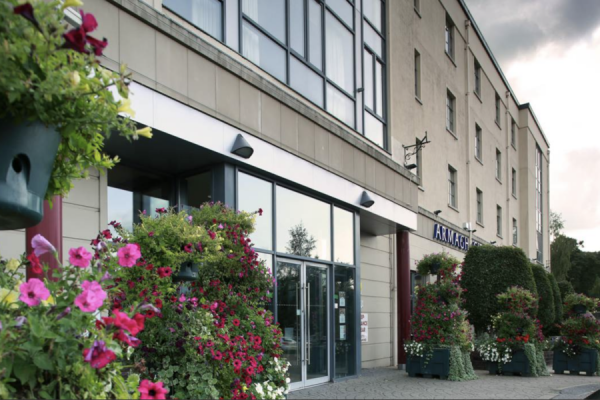he Irish Hotels Federation Annual Conference took place in Killarney last month and, according to research announced by the organisation, things are looking up our industry. Attending the event, Hospitality Ireland was struck by the overwhelming optimism amongst hoteliers up and down the country – and interested to see what becomes of the EIIS scheme.
Following years of hardship, we appear to be turning a corner – at least psychologically. Whilst the majority of hotels and guesthouses expect to see a growth in business this year as a direct result of The Gathering – as reported by the IHF at their conference – the real success will be judged in a more longer-term setting. Even so, over three quarters of those questioned by the organisation were planning for greater numbers this year, directly due to the tourism initiative. “The real benefit of The Gathering will be to harness the interest, application and energy that the local community groups have shown,” said Michael Vaughan, IHF president. “We now have highly active and motivated groups right across our communities who are engaged within their local areas organising events of every scale.” In effect, these community groups in their regions are creating reasons for people to come to their area – this is bringing tourism product development right back into the regions. “We need to help these groups continue their efforts into the future through creating a support framework going forward,” he says. There were numerous talks given by industry professionals throughout the three-day event, with Markus Luthe, Vaughan’s German counterpart speaking about the power which can be gleaned from harnessing Google’s vast array of opportunities.
EIIS Scheme
However the most interesting aspect of the entire event was the discussions on EIIS. Hotels have a critical role to play in contributing to the recovery of Ireland’s tourism sector and the wider economy. Despite the downturn, on average hotels are generating operating surpluses, although the situation varies from hotel to hotel – with significant regional disparities. Most hotels in Ireland are economically viable, but in many cases balance sheets will need to be restructured to reduce the debt burden and increase the level of equity in the business.
New equity investment in hotels is required if the sector is to survive and prosper. Following submissions made by the Irish Hotels Federation, the Finance Bill 2013 provides for an extension of the Employment and Investment Incentive Scheme (EIIS) to include the operation of registered hotels, guest houses and self- catering accommodation. The EIIS extension has been designed to address both the financial market failure and the hospitality sector’s need to raise the equity capital required to restructure debt. This important and very welcome advance will assist in restoring the stability required to realise the hotel industry’s potential as an engine for job creation across the country and restore ownership of the hotel industry to those who have a long-term interest in it. As sustainable hotel industry is crucial to the tourism sector, Failte Ireland have been designated as the body to issue a Certificates of Approval for EIIS qualifying applicants. This may become the most exciting part of the Irish hotel sector’s future.
Labouring The Point
However, despite this optimistic outlook, obstacles are continuing to emerge.
Any attempts to reintroduce the Joint Labour Committee (JLC) system are little more than pandering to trade unions at the expense of job creation in the hotels sector, according to Vaughan, who called for the JLC system to be abolished and accused factions within the Government of having blatantly undermined initiatives to stimulate employment in the hotels sector by caving into short-sighted union interests. In a survey carried out in advance of the conference 91 per cent of hoteliers stated that the increased burden and cost of meeting employment regulations under the JLC system would hinder their ability to take on additional staff this year. This comes at a time when room rates in Irish hotels are among the lowest in Western Europe while wage costs for new recruits are the fourth highest in the EU. The Labour Court is currently carrying out a review of the JLC for wage setting within the labour intensive hotels sector as set part of its remit under legislation introduced by the Government last year. The legislation, which aimed to resuscitate the system, imposes anticompetitive wage demands and excessive red tape on businesses. “JLCs impose an additional layer on employers,” says Vaughan. “We have little confidence in a review that has been commissioned by the LRC - one of the key architects of the JLC system since 1946. We believe job creation in our sector is essentially being jeopardised as part of calculated and short-sighted attempts to appease the unions.”








